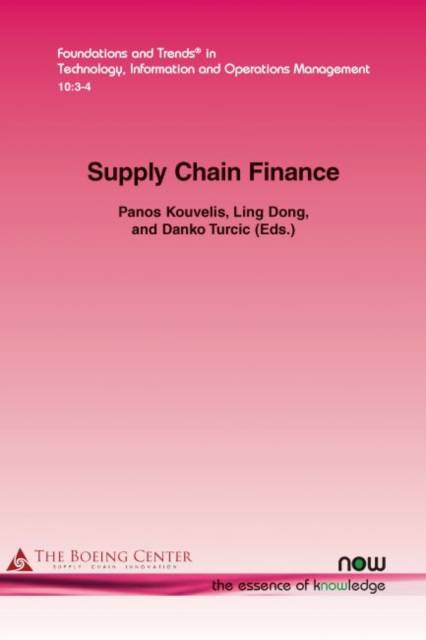
- Retrait gratuit dans votre magasin Club
- 7.000.000 titres dans notre catalogue
- Payer en toute sécurité
- Toujours un magasin près de chez vous
- Retrait gratuit dans votre magasin Club
- 7.000.0000 titres dans notre catalogue
- Payer en toute sécurité
- Toujours un magasin près de chez vous
Description
Supply Chain Finance focuses is on creating liquidity in the supply chain through various Buyer or Seller-led solutions with or without a facilitating technology. The role of supply chain finance (SCF) is to optimize both the availability and cost of capital within a given buyer-supplier supply chain. To add further value, information on the physical flow of goods can be monitored. The coupling of information enables lenders to mitigate financial risk within the supply chain. The mitigation of risk allows more capital to be raised, capital to be accessed sooner, or capital to be raised at lower rates. Supply chain participants reside in diverse economic environments, are of different sizes, face a variety of uncertainties, have different bargaining powers over its trading partners, and have different accessibilities to capital markets. Many forms of financing arrangements between buyers and suppliers have emerged intending to overcome challenges in their specific economic and business environments. Part 1 examines Supplier Financing. The three papers included in this section discuss supplier based financing issues including: motivation and rationale for supplier based financing, the optimal mix of bank financing and supplier financing, and empirical study of the impact of trade credit on firm performance. Part 2 focuses on Buyer Financing including three papers included that discuss buyer based financing issues in supply chains including the rationales of different types of buyer based financing arrangements and their impacts on supply chain performance. Part 3 reviews Inventory Models and Financing Consideration and the two papers in this part of the book explore how to coordinate the management of the cash flow and inventory flow within an organization and the relationship between a firm's inventory policy and its cost of capital. Part 4 examines Operational Investments and Financing Issues and includes four papers that address operational investments with explicit financing considerations.
Spécifications
Parties prenantes
- Auteur(s) :
- Editeur:
Contenu
- Nombre de pages :
- 274
- Langue:
- Anglais
- Collection :
- Tome:
- n° 27
Caractéristiques
- EAN:
- 9781680833768
- Date de parution :
- 21-12-17
- Format:
- Livre broché
- Format numérique:
- Trade paperback (VS)
- Dimensions :
- 156 mm x 234 mm
- Poids :
- 385 g

Les avis
Nous publions uniquement les avis qui respectent les conditions requises. Consultez nos conditions pour les avis.






